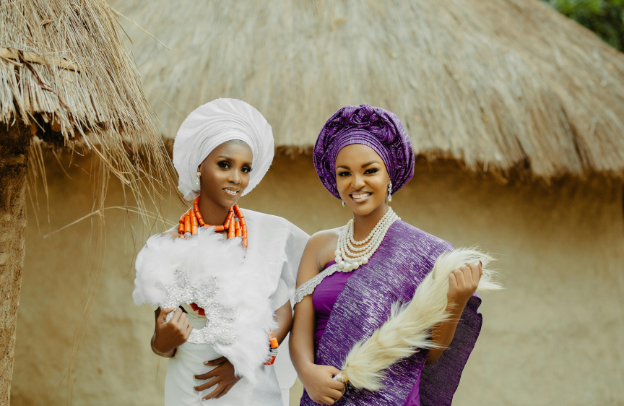Diaspora Group Tours: A Collaborative Pathway to Empowerment and Cultural Reclamation

It often begins with a spark; an ancestral name mentioned in a story, a traditional dish served at a family gathering, or a yearning to understand the distant land that pulses in one’s veins. For many African diasporans, this longing manifests not just as a personal journey, but as a collective endeavor.
Learn How to Leverage Your Story through our Story To Asset Framework.
Group travel among members of the African diaspora is no longer just about leisure—it is increasingly recognized as a dynamic pathway for empowerment, cultural reclamation, and collaborative economic growth.
The diaspora experience, shaped by centuries of displacement—from the transatlantic slave trade to ongoing waves of economic migration—has left many African descendants disconnected from their ancestral roots.
In response, a growing movement within the African diaspora is reclaiming heritage through travel, using it not only as a means of reconnecting with culture but also as a vehicle for socio-economic development.
At the forefront of this movement is WeDiasporan, a socio-cultural research organization led by Obehi Ewanfoh. With a mission to foster meaningful, transformative experiences for the diaspora, WeDiasporan is built upon three foundational pillars:
- Diaspora Memorial & Tourism Exchange – Curating immersive heritage journeys that honor ancestral memory, foster healing, and reconnect diaspora communities with their cultural roots.
- Explorative Dialogue for Mutual Collaboration – Bringing communities together through live events, conferences, and curated experiences—including film, storytelling, and critical conversations—that spark empowerment, awareness, and strategic collaboration.
- Knowledge Transfer – Driving sustainable development by facilitating education, mentorship, and the exchange of skills and expertise across borders and generations.
In addition to his work through WeDiasporan, Obehi Ewanfoh is a seasoned storyteller, content strategist, and business connector. He specializes in Business-to-Business (B2B) matchmaking, with a particular focus on helping Western companies navigate and access Africa’s rapidly expanding markets. His work bridges continents, creating mutually beneficial partnerships between global businesses and African enterprises.
Through his platform, The Obehi Podcast, Obehi has conducted over 1,000 interviews with professionals, entrepreneurs, and thought leaders across the African diaspora and beyond. This extensive network gives him unparalleled insight into emerging markets and the individuals driving innovation within them.
For those unfamiliar with business matchmaking, it is a strategic process of connecting organizations with complementary products, services, or expertise to form win-win partnerships. These connections can take many forms—from personalized introductions and joint ventures to trade missions and curated networking events. Obehi leverages:
- His deep global network across the African diaspora
- Strong relationships with businesses throughout multiple African countries
- A passion for linking people, ideas, and markets to spark collaboration
Whether you’re a Western business looking to explore African opportunities or an African enterprise seeking international growth, Obehi is committed to helping you make the right connections—and turn those connections into impactful, sustainable opportunities.
See also Join Us to Reshape the African Diaspora Narrative – WeDiasporan Volunteer Series 8/21
By weaving cultural heritage with entrepreneurship, and travel with trade, this approach to diaspora engagement is not just about traveling—it’s about transformation. It’s about reclaiming identity, building wealth, and shaping a shared future across borders.
Today, however, many are actively retracing their roots through organized tours to African nations. These journeys, when undertaken as a group, allow for shared learning, emotional resonance, and a synergy that transforms travel into a collective reclamation of history.
Take, for instance, initiatives like the Year of Return campaign launched by Ghana in 2019, which invited members of the African diaspora to visit the country and reconnect with their ancestry.
According to Ghana’s Ministry of Tourism, Arts and Culture, the initiative drew over one million visitors and generated more than $3.3 billion for the local economy. But beyond economics, the real impact was cultural.
Group tours through Cape Coast Castle or visits to traditional villages created an atmosphere of collective reflection and empowerment. Individuals found solace in shared grief, strength in rediscovered history, and hope in collaborative futures.
These tours function as more than sightseeing excursions. They are incubators for conversation, creativity, and connection. As observed in a report by the African Union’s Citizens and Diaspora Directorate (CIDO), diaspora engagement through cultural travel leads to strengthened networks and sustainable initiatives.
See also African Agenda 2063 – The Africa We Want By The African Union
In group settings, participants engage in storytelling circles, debriefs after emotionally charged visits to heritage sites, and panel discussions with local historians and entrepreneurs. These interactions encourage diasporans not only to learn about Africa but to co-create visions with local communities.
Such co-creation often results in entrepreneurial and social development projects. A growing number of group tour participants are investing in local education initiatives, health outreach, or sustainable agriculture.
The African Diaspora Network, for example, facilitates travel exchanges that lead to collaborative investment in tech innovation and business mentorship in countries like Kenya, Nigeria, and Rwanda. These are not mere outcomes of goodwill, they are structured through the solidarity and mutual trust developed in group tour dynamics.
Memory-building, another critical dimension, thrives in communal travel. When members of the diaspora visit slave dungeons, ancestral villages, or cultural festivals together, a layered understanding of history unfolds.
This memory is not individual; it is collective and reinforced through shared experience. Scholars such as Paul Tiyambe Zeleza argue that African diasporas are not just populations, but historical projects bound by memory and imagination. Group travel becomes a platform to activate this memory and channel it into strategies for cultural preservation.
Cultural reclamation is particularly potent in settings where African traditions have been diluted or erased. In group travel contexts, participants often engage in language learning, culinary immersion, and participation in indigenous rituals.
See also Strategies for Plantain Export Growth: How African Farmers Can Compete on the Global Stage
Organizations like African Ancestry, which helps diasporans trace their lineage through DNA testing, often partner with travel companies to create personalized group tours that culminate in naming ceremonies and traditional welcome rituals. These moments reclaim what was historically denied: a sense of belonging.
In group settings, this reclamation is emboldened. Participants share their emotional journeys, encourage each other through cultural unfamiliarity, and develop lasting friendships that evolve into diaspora networks.
These networks often outlive the trips themselves, spawning initiatives that target systemic inequality and promote African cultural literacy in schools, workplaces, and creative sectors.
Moreover, group travel fosters multigenerational learning. Families traveling together, elders guiding younger diasporans, and youth-led travel circles are all becoming more common. Programs like Birthright Africa, modeled after the Jewish Birthright program, offer free educational group trips to Africa for youth of African descent.
Such initiatives ensure that the reclamation of identity does not stop at inspiration; it becomes a lifelong project reinforced by early exposure and communal storytelling.
Tourism is also becoming a means of rewriting global narratives about Africa. Mainstream Western media has long portrayed the continent through a narrow lens of poverty and conflict. But when diasporans visit Africa as groups, documenting their experiences, blogging, vlogging, and sharing nuanced perspectives, they counter these stereotypes with authenticity.
Influencers like Jessica Nabongo, the first Black woman to travel to every country in the world, emphasize the role of travel in changing the Black narrative globally. Group travel magnifies this storytelling power.
See also The Power of Group Cultural Tourism to Build Deeper Connections Among People of the African Diaspora
These stories matter because they inspire action. Diasporans return home with more than souvenirs, they return with ideas, networks, and renewed purpose. In turn, they launch diaspora festivals, create Africa-focused school curricula, or invest in local startups.
The ripple effects of one tour can ignite a chain reaction of collaborative change. But such outcomes hinge on group dynamics—on the support, inspiration, and accountability that groups naturally provide.
Yet, challenges remain. Group travel must avoid becoming extractive. Communities hosting diaspora tourists must be empowered as co-creators, not passive service providers. Initiatives like the Africa Travel Association (ATA) have been instrumental in advocating for responsible travel that benefits both travelers and hosts. Ethical group travel requires mutual respect, fair economic exchange, and a commitment to long-term partnerships, not one-time visits.
Another obstacle lies in accessibility. Group tours can be cost-prohibitive, especially for young diasporans or those from low-income backgrounds. Scholarships, nonprofit collaborations, and diaspora philanthropy are helping bridge this gap, but more work remains.
The future of diaspora empowerment through group travel depends on expanding who gets to go, who gets to lead, and who gets to benefit.
Technology is increasingly a bridge. Virtual group tours, cultural exchange apps, and digital storytelling platforms are emerging tools that amplify the impact of physical travel. Platforms like CulturalIQ and WeGoToo are connecting diasporans with cultural experts, virtual guides, and tour coordinators across Africa, enabling collaboration even when borders stand in the way.
See also Group Travel – A Shared Adventure in Verona: My Verona Journey Series, Part 8
In this way, group travel is evolving into a global infrastructure for diasporic connection. It is a vessel for cultural reclamation, a launchpad for entrepreneurial collaboration, and a haven for collective memory-building. For many, it is the first step toward home, not just a place, but a people, a purpose, and a path forward.
As more diasporans answer the call to explore Africa together, what emerges is more than travel; it is a movement. This is a movement rooted in healing, solidarity, and the radical act of remembering together.
In the echoes of ancient drums, the tastes of forgotten cuisines, and the laughter shared under African skies, diasporans are not only discovering Africa. They are, together, discovering themselves.
Learn How to Leverage Your Story through our Story To Asset Framework.





